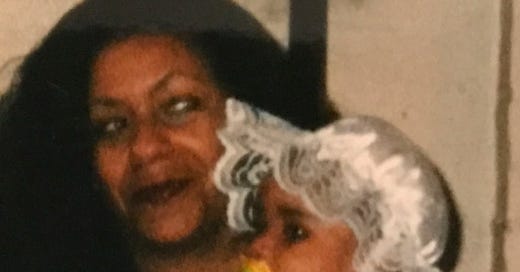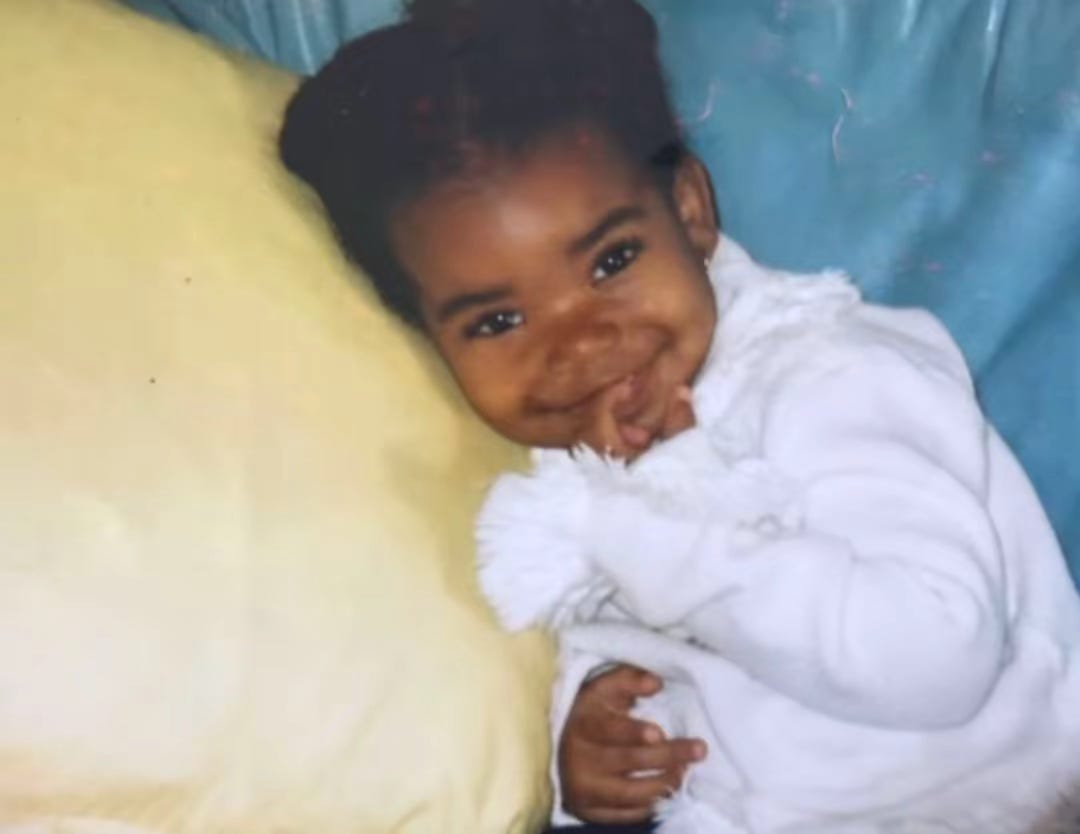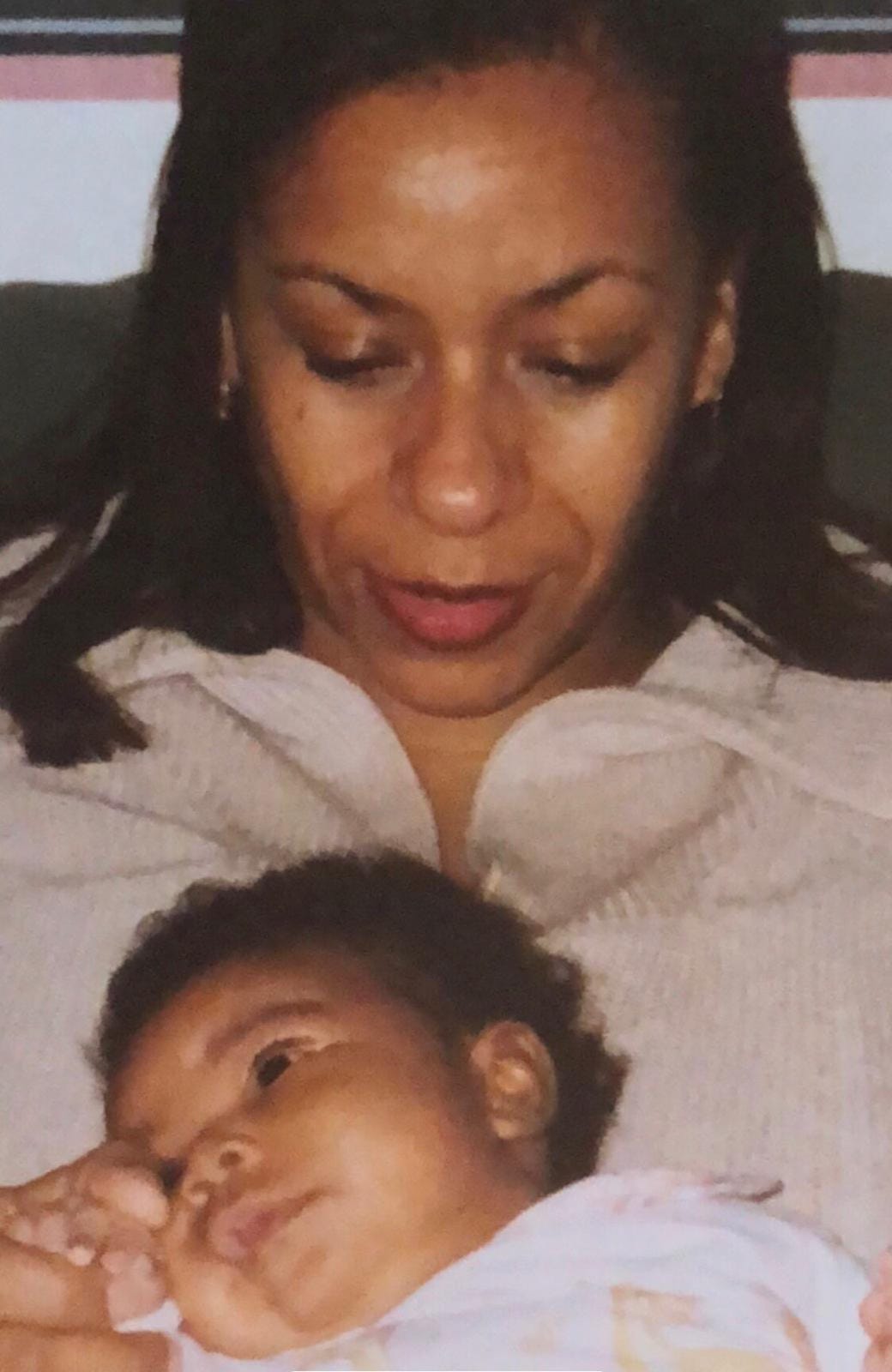I found my dad through Facebook.
cancer, cool ranch, and the click that mended a fractured fatherhood
13, the number sullied with superstition and coming-of-age movies of the 2000s. 2012, the year I turned 13, the year I would start exploring girlhood as a teen and would finally find my father.
I was born in South London, home to the Caribbean and West African diaspora. Through primary school, I had a solid girl group. We called ourselves “The Pink Cheetahs”. We would talk about everything little girls would natter about: the latest Beyoncé album, which boy we liked, and what dolls we really wanted. Our sleepovers were free of trauma stories, just an awkward apprehension. I hated going over to their houses when their dads were there.
A man being in the house was an odd concept to me, even if that man was their dad. I didn’t have one. Mine didn’t exist. He disappeared into thin air when I was a baby, and “dads” were only a concept, a conspiracy theory. So when I entered the home of a friend or distant cousin and saw a man lounging in the living room, it felt like encountering a mythical creature. Not a magical mermaid, but something more like a gnome: an unexpected, niggling reminder of what I didn’t have and deep down always wanted.
I look just like my dad. And let me tell you, my maternal grandmother would never let me forget it. “Yuh look just like yuh daddy, you know?” she’d say whenever the topic of family resemblances came up. I hated those conversations. I was the only one of her grandchildren who didn’t even remotely resemble the rest of the family. They never framed it as a negative, just a fact. For me, though, it was a boiling point. I looked like the father I’d never known, someone subconsciously linked to every insecurity that made me feel unworthy or different. Staring into the mirror became a reminder of the person who’d hurt me most.
He wasn’t around but I had my Mum, Nan and Auntie. My Mum has always been my best friend. She sees me for everything I am and everything I am not, and she loves me for it all. She has always been gracious, patient and understanding. There is no fear of rejection in baring my true self to her, and that has been my saving grace. At 26, I tell her everything. She’d probably argue I tell her too much. She encourages me to become more faithful, more authentic, more bold. Jesus is the cornerstone of my life, but those three women who physically held me as a child and spiritually hold me as an adult are the building blocks beside Him. That foundation was rocked in 2012.
My mother’s health rapidly declined over a few months. A slight cough progressed until she couldn’t walk a few steps without gasping for air. One day, I came home from school and sensed something different. There was no Dutch pot on the stove keeping my dinner warm until I finished my homework. My nan hovered oddly around the kitchen, her steps devoid of certainty.
“Hello Martina, yuh alright, how was school?”
“Hi Nanny, it was good thank you, how was your day?”
“That’s good, that’s good… don’t take your coat off, we’re going out”
“ Oh ok, why? what’s going on?” I asked. There was something she wasn’t saying, and it frustrated me. When we revisit that day now, she insists she didn’t want me to worry. But that was impossible. Her next words would instil any child with dread:
“Your mum is in hospital, I had to call the ambulance, she couldn’t breath”
My mother’s lungs were filled with fluid. A trillion tests later, we learned she had cancer: aggressive Non-Hodgkin’s Lymphoma. At the time, I didn’t react emotionally. I internalised it all, stockpiling fears and tears for another day. That day arrived when I found my dad on Facebook.
She had just started chemotherapy. On this particular day, my nan allowed me extra computer time as a treat for spending all day at the hospital. After poking a few friends on Facebook, curiosity struck. I’d like to believe this was God’s nudge towards healing, because this story has a happy ending. I’ve been made new and whole.
I roughly knew his name, so I began typing the letters, searching for a figment of my imagination. My Jamaican nan, crunching loudly on a packet of Doritos, suddenly exclaimed, “See him deh! That’s him! That’s yuh daddy! Yes!” She nearly threw the bag of Cool Ranch crisps in the air. My mother, exhausted from treatment, jolted with recognition. It was him. My dad.
I instantly sent a friend request and scoured his profile, clicking through photos. They were right. I did look like him. We were practically twins. The only traits I inherited from my mum were her jolly demeanour and complexion. Then I found pictures of children. Three of them.
It’s hard to capture the feeling with words, harder still to be this vulnerable. But I’ll try: when you grow up without a father who chose to leave, you ask yourself, “Why? What about me made him go? What’s wrong with me? If I wasn’t good enough for the man who made me, will I ever be enough for anyone else?” You convince yourself you’re lesser, not right. Seeing his other children, whom he proudly posted, while I felt like a shameful secret from an unacknowledged life, only cemented this.
All the pain, anxiety and anger I’d internalised for years, all the fear of losing my mother, tumbled out. I wish I could recount everything I said to him that day, but the rawness blurred the details. My truth wasn’t rehearsed. Every wound I thought had been stitched shut by my mother’s love tore open again.
What I say next may shock you: I love my dad. Our journey hasn’t been straightforward. It’s been about healing and moving forward without denying the past. While I acknowledge he failed me, the only way to heal was to confront the heartbreak he caused, then commit to moving on.
What did that look like? Accepting his mistakes were just that: mistakes. They weren’t a reflection of my worthiness, or lack thereof. It meant understanding parents aren’t perfect, and that withholding grace would’ve left me avoidant and cold. This wasn’t about him. It was about liberating myself, shaking off misplaced guilt. It was about knowing myself fully, not just through my mum’s lineage but my dad’s too. It was about repairing my perception of men and learning I don’t need to perform or shrink around them.
Now? The chemo worked. My mum remains the most courageous woman I know. My dad and I are thick as thieves. We have regular father-daughter dates where we discuss everything under the sun, including my love life. I have younger siblings I adore, who inspire me to learn and grow, especially when they seek my advice.
13, a number etched into folklore as a harbinger of misfortune, became for me a threshold of reckoning. It was the age when girlhood collided with grief, when abandonment and diagnosis threatened to define me. Yet it was also the year I learned that curses can crack open to reveal grace. Thirteen years of absence led me to a man who, in his flawed humanity, taught me how to forgive. Thirteen moons of fear taught me how to fight. And 2012, that year of endings and beginnings, gifted me a truth: sometimes the very thing that haunts you becomes the compass that guides you home.
If this piece resonates; if you’ve ever grappled with absence, unexpected healing, or the messy magic of family, I’d love to hear your story in the comments. And if you’d like to follow along as I untangle more threads of girlhood, faith, and fractured fatherhood, tap the heart, share this with someone who needs it, and subscribe. Stories like ours lose their power in the shadows; let’s bring them into the light together.
P.S. If you’re wondering: yes, my Nan still crunches Cool Ranch crisps like they’re a sacrament. Some things never change








This piece was beautiful. Thank you for sharing this and I love how you communicated the duality of your feelings in such a poetic and honest manner. I am so happy you still have your mother and a new relationship with your father. What a blessing. Side note: YOU ARE so beautiful. Your baby girl self has my womb ready to try for baby number 2 and I want a girl real bad!!
ur lore >